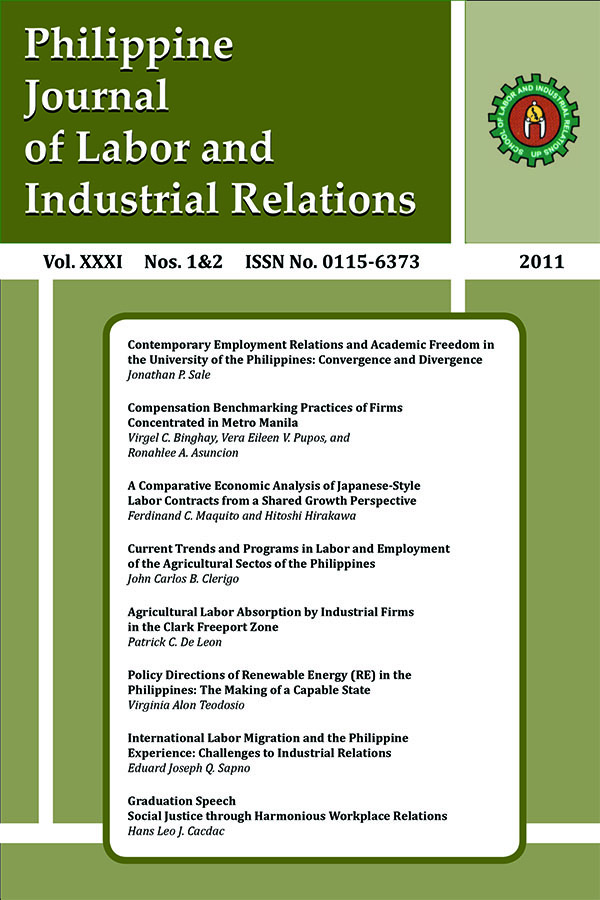Contemporary Employment Relations and Academic Freedom in the University of the Philippines: Convergence and Divergence
Abstract
The University of the Philippines (UP) has a new charter—Republic Act No. 9500 (2008). It declares UP as “the national university.” UP is the only university in the country accorded such a status. This makes UP sui generis. The new charter has implications for employment relations and academic freedom. There are areas of convergence between employment relations and academic freedom in the national university. Jurisprudence afirms UP’s academic freedom, which includes the “autonomy to choose who should teach” and “who should be retained in its rolls of professors and other academic personnel.” UP faculty members and research, extension and professional staff (REPS) are not covered by civil service law, rules and regulations, including the Revised Uniform Rules on Administrative Cases in the Civil Service and the pertinent provisions of Republic Act No. 6713, as requisites to appointment and removal since the power of appointment includes the power of removal. There would be an eventual shift of governing employment and social security laws to the Labor Code and Social Security Act as regards faculty members and REPS. They belong to one bargaining unit. However, the Civil Service Decree and related laws apply to the administrative staff. While there is convergence between employment relations and academic freedom as to faculty members and REPS, divergence is also evident. Dualism characterizes contemporary employment relations in the national university. Academic freedom is inluencing the dichotomy between employment relations for faculty members and REPS (academic personnel) and that for administrative staff (non-academic personnel).
Published
2020-09-16
Section
Articles


